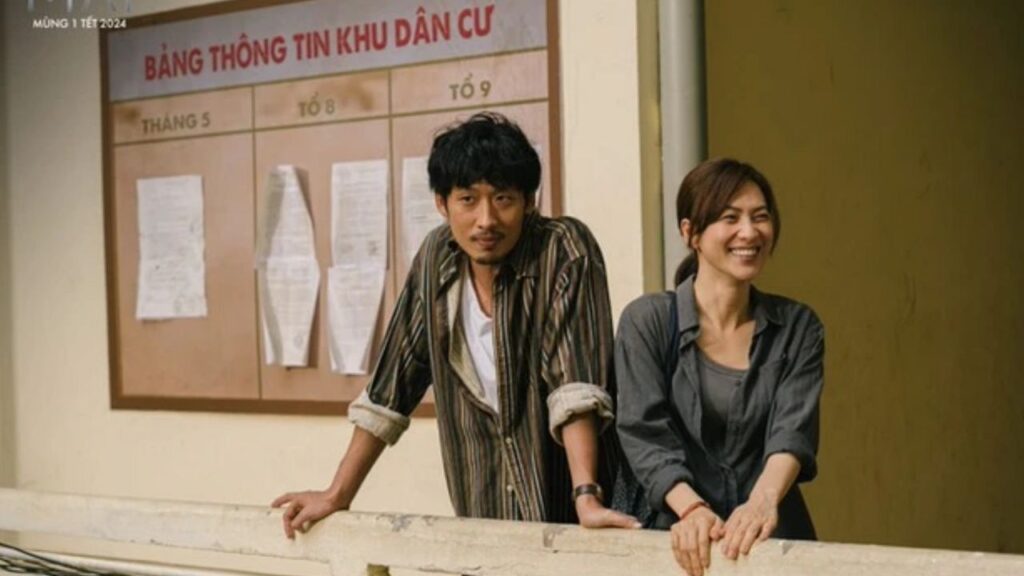“Those in love are never wise.” There’s a lot of truth in this quote from Mai. This Vietnamese rom-com on Netflix, about a rich playboy who pursues an older woman, is full of emotional entanglements. When sparks fly between them, their relationship ignites a potent gunpowder of social judgement, cultural pressures, and familial expectations that burn the star-crossed lovers and those around them.
Mai is a single mother who moves to Saigon. Phuong Anh Dao plays the character with quiet dignity and resilience born from a lifetime of hardships and sacrifices. All she wants is a peaceful life where she can work hard as a masseuse to support her teenage daughter and gambler father. But the moment she moves to her apartment, the new neighbours mark Mai as a target for their scorn, frustrations, and lusts.
She also immediately catches the eye of Duong, a handsome younger neighbour with a reputation as the community’s Casanova. For Duong, Mai is unlike any woman he’s ever met – she’s the only one who ignores him. Forbidden fruit is the most irresistible, and Duong sees Mai as the ultimate conquest. He begins booking appointments with her at the spa where she works, hoping she’ll give him more than just a massage.
Fortunately, Mai’s playful skill at deflecting Duong’s advances prevents things from turning into a truly creepy depiction of workplace sexual harassment. The older, wiser Mai has been burned enough by life, so she keeps Duong in his place. Eventually, though, he wins her over (or wears her down?), and they begin a surprisingly mature relationship.

The romance between a rich boy and a poor girl is given something of a twist in this one because Mai actually earns more than Duong. This is a sore point for Duong’s mother who, in a convolution worthy of a telenovela, also happens to be Mai’s best client and friend, Dao. She is a rich, successful CEO who loves Mai like a daughter, but when the three of them discover their unexpected connection, Dao’s maternal claws emerge.
Dao leverages her formidable business skills to show Mai the costs of dating her son. As selfish as Dao’s motives are, her argument makes sense. She reminds her younger friend that men can mess up constantly without consequences, but their culture is less forgiving to women, especially single mothers, who have few opportunities to start over from a failed relationship. But Mai already knows all about society’s unfairness. Her every move is watched and judged wherever she goes. The male gaze is a constant threat at work, at home, and on the streets. In one of the movie’s most disturbing scenes, a man enters Mai’s apartment uninvited to “help” her.

The female gaze is also something Mai struggles against. The incurably nosy women at her apartment and at the spa view Mai as a usurper in their territory. It’s a little hard to believe so many people can automatically despise someone so sweet on sight, but that’s Mai’s life. The only truly good woman around is a prostitute neighbour that everyone looks down on.
She encourages Mai to fight back, and when she does, it’s absolutely glorious. She tears into her neighbours and colleagues and gives them hell in a very satisfying way. Although the slapstick catfight between Mai and her rival Trinh at the spa lasts longer than it should, the release is cathartic and the cinematography is electric.

The creative visual style, editing, and music stand out throughout the movie, giving everything a burst of energy and humour. One of the most memorable moments is the steamy montage of Mai vigorously cleaning her apartment, interspersed with scenes of Duong having sex with a prostitute next door. The match-cut editing and sounds are spot-on as Mai pumps her mop while Duong pumps… you know. Cleaning house will never be the same.
This potboiler strives for everything – emotional peaks and lows, forbidden love, cultural commentary, and even LGBTQ-friendly characters. It is a sometimes uneven rom-com that mashes themes of surviving sexual abuse and uplifting female empowerment with sugary sentimentality and high-energy cinematography. The final brew resembles the black Vietnamese coffee Mai loves drinking – thick, dark, and intensely caffeinated.









Follow Us